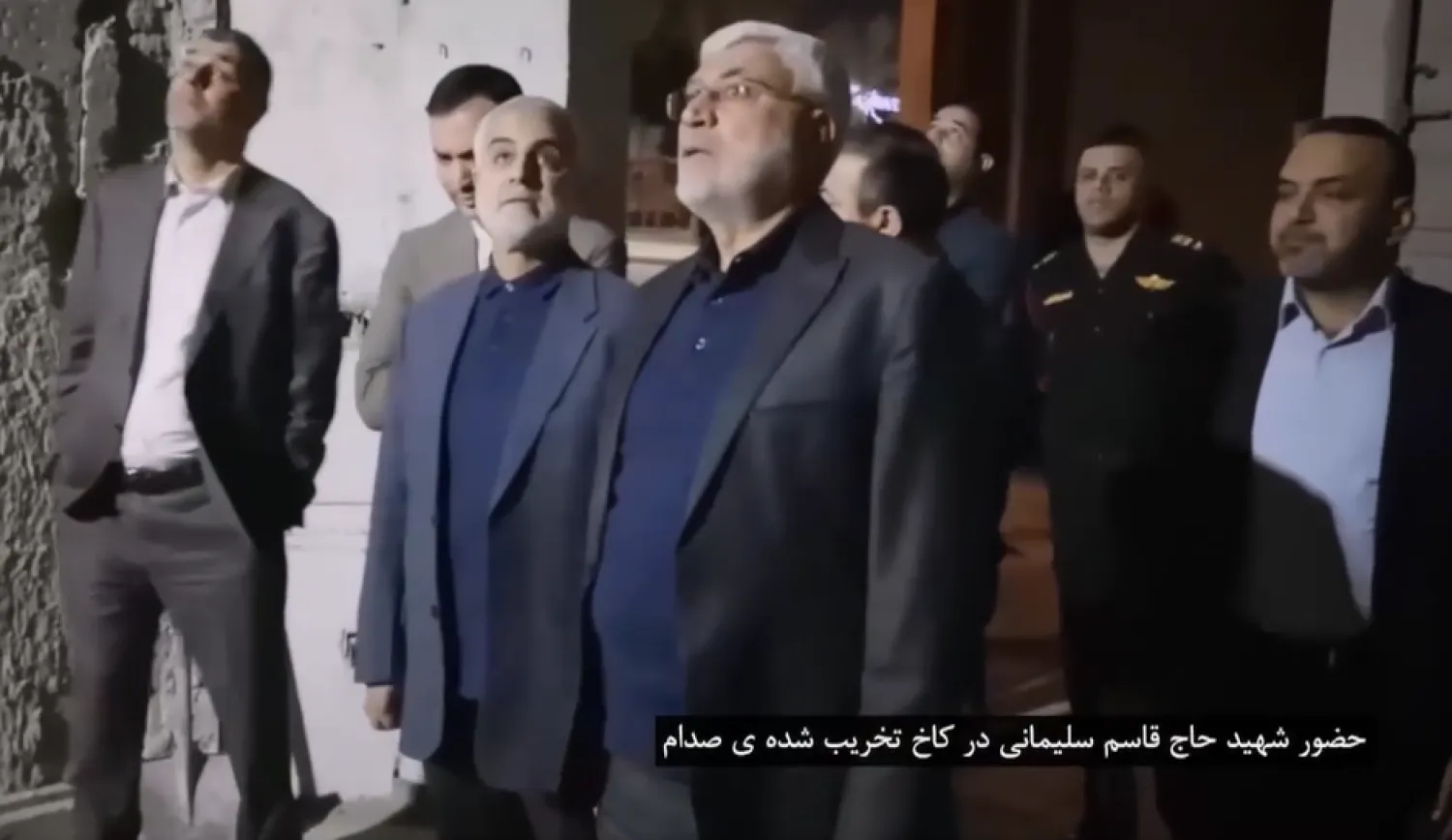A video showing Qassem Soleimani, the late commander of Iran’s Quds Force, exploring one of Saddam Hussein’s former palaces has stirred significant controversy on social media.
The 30-second video, released by the Tasnim news agency, shows Soleimani and Abu Mahdi al-Muhandis, who was the deputy head of the Popular Mobilization Forces (PMF), an Iran-backed paramilitary group in Iraq, walking through a ruined palace once owned by the former Iraqi president.
Tasnim, which is affiliated with Iran’s Revolutionary Guard, said the footage, aired for the first time, is part of an Iranian documentary.
Also in the video are Ahmed al-Asadi, Iraq’s current Labor Minister, and Mohammed Sahib al-Daraji, a former Minister of Construction and Housing.
On January 3, 2020, Soleimani was killed alongside al-Muhandis in a US airstrike near Baghdad International Airport.
Years earlier, the US Treasury Department had placed Soleimani on its blacklist for his alleged “terrorist” activities in the region.
Later, an Iranian TV station (TW) released the full documentary titled “The Builder... and The Destroyer,” focusing on Qassem Soleimani and Saddam Hussein.
The video doesn’t specify when Soleimani visited Saddam’s palace, but the presence of Iraqi officials suggests it was after 2014.
The footage shows Soleimani inspecting the palace’s damage and touching a marble column, with al-Muhandis explaining the details.
The documentary also includes clips of Saddam Hussein in Baghdad shortly before the 2003 US invasion, with Iraqis discussing their inability to visit Shiite shrines under the Baath regime.
The documentary highlights the role of Iran’s Revolutionary Guard in restoring Shiite shrines in Najaf and Karbala, which were damaged in 1991.
It features Iranian officials, including former Iranian ambassador to Baghdad Iraj Masjedi, who discuss the Revolutionary Guard’s efforts in expanding and developing these shrines.
The film presents these efforts as a way to enhance annual Muharram visits, which were suppressed under the Baath regime. It also describes the Revolutionary Guard's fight against ISIS as a mission to protect Shiite shrines in Iraq and Syria.
At the end of the documentary, Soleimani is seen at the Sayyida Zainab shrine in Syria, receiving a key from a soldier.
Iraqis reacted strongly to the video, with many criticizing officials for letting Soleimani enter Saddam’s palace. Bloggers pointed out that the US, which invaded Iraq, allowed Iran to gain influence there and later was responsible for Soleimani’s assassination.









